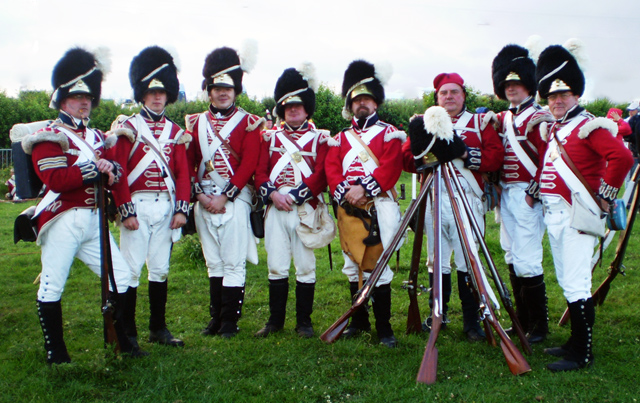The Last Shot at Waterloo August 18, 2014
Author: Beach Combing | in : Modern , trackbackTomorrow Beach has an appointment to go through a Welsh text for six long hours, translating and puzzling. Today he thought he would post, then, this cute story from the early nineteenth century with a Welsh connection in partial celebration.
It will be remembered that the Welsh had a long history of doing good service on battlefields against the French: Crecy, Agincourt and also Waterloo (though with rifles rather than long bows at the last). This is an account of the service of a man of Beddgelert (Snowdonia in northern Wales), who had fought among the red coats in the Seventh Coalition on that bloody day, 18 June 1815. In almost the last volley of the conflict he had had a stroke of misfortune. A French bullet had entered his knee cap, one of the most agonising injuries possible by all accounts and he just had men with saws and a conspicuous lack of anaesthetic to look forward to.
When the battle was over the soldiers cleared away, and nothing but the dead and wounded were left on the field. There he lay quietly suffering and enduring, when he saw the shadow of a head. He raised his head to see what it was, and lo! there he could see a little woman going rapidly from one body to the other, robbing their jewels and all other valuables. If one of them happened to be still living, she would tap him hard on his forehead with a little hammer, which she carried in her left hand, and thus give him his quietus. When she saw his head uplifted, and perceived that he was watching her movements, she nodded to him, as much as to say, ‘All right, I will be with you presently.’
So many questions. Did this woman really believe she could just crack soldiers on their heads to steal their jewellery? Wasn’t it insanely dangerous to walk among desperate and injured men like this? If we can trust the narrative is it possible that she was saying with her nod: ‘don’t you worry I’m not coming near you mister, because you might do me some unwelcome damage’. Any thoughts or any other last shots from other battles: drbeachcombing AT yahoo DOT com The whole industry of stripping the dead sounds interesting too.
It bethought him that his gun was by his side, so he quietly stretched out his hand, picked it up gently, and pointed it at her. ‘The next minute she was tumbling head over heels,’ said he, ‘and that was the last shot at Waterloo.’
It is an ignoble thought but is it possible that our lad with the dodgy knee from Beddgelert removed her ill-gotten gains from the dying woman’s purse?
31 Aug 2014: Michel C. with a nice parallel ‘One can’t help wondering if Rudyard Kipling had read this story, and if it was the inspiration for the closing stanza in his Ballad of the Young British Soldier:
When you’re wounded and left on Afghanistan’s plains,
And the women come out to cut up what remains,
Jest roll to your rifle and blow out your brains
An’ go to your Gawd like a soldier.
Go, go, go like a soldier,
Go, go, go like a soldier,
Go, go, go like a soldier,
So-oldier of the Queen!
By the time Kipling was writing you couldn’t really admit to the cold-blooded shooting of a neutral civilian any more …’
Thanks Michel!



